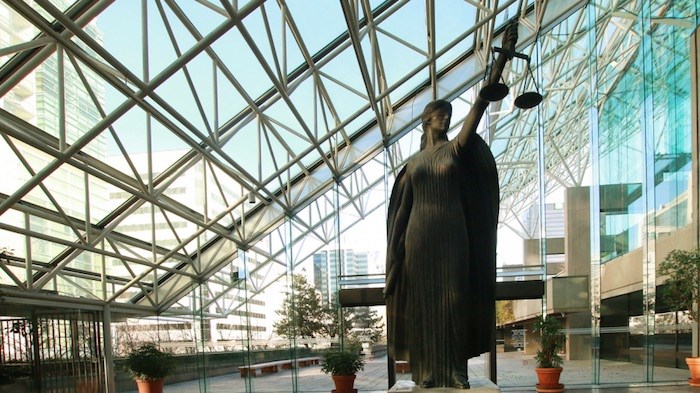B.C.’s attorney general says people fleeing family violence will have greater access to legal aid with a boost of $29.1 million in funding over the next three years.
"When someone is fleeing family violence, they are often experiencing the worst trauma of their lives," Niki Sharma said. "With these changes, we are taking action to further improve services and better support people leaving dangerous situations."
The government said a new multidisciplinary, trauma-informed family law clinic model will offer in-person and virtual services to those seeking help.
The services are to be delivered by Legal Aid B.C. (LABC).
LABC CEO Michael Bryant said the funding boost is “the largest expansion of family law legal aid in a generation.”
"This will help a lot of people in legal distress. This is a historic day for access to justice in B.C.,” he said.
Eligible clients will receive legal representation and services necessary to help stabilize their legal situations, the ministry said.
Sharma said the changes resolve a longstanding Centre for Family Equity (CFE) constitutional challenge to the family law legal aid system. The group was previously known as the Single Mothers' Alliance.
Funded by government and delivered by LABC, the clinic is expected to open before the end of this year.
Until then, new clients who would be eligible for clinic services once in operation can access an additional 25 hours of legal aid services, the ministry said.
LABC will also draw on community engagement and the expertise of other organizations in the sector to develop and implement operations at the clinic.
"Women who cannot afford costly legal representation should never be left at risk when facing intimate partner violence," CFE director Viveca Ellis said. "This significant expansion and innovation in legal aid services is a step towards protecting the rights of these vulnerable individuals to safety and security at a time of grave risk."
The constitutional challenge
Represented by West Coast LEAF and pro bono counsel, the CFE took the case to the B.C. Supreme Court in 2017 to secure more responsive legal supports for single mothers experiencing family violence.
"Two decades ago, the provincial government significantly cut family law legal aid services,” said Raji Mangat, West Coast LEAF executive director, in August 2022.
“Following these cuts, many single moms could not get the help they needed in incredibly difficult circumstances involving family violence,” Mangat said.
The alliance was being represented by West Coast LEAF, whose executive director said that eligibility requirements were problematic because single mothers must earn about $29,000 for a two-person household to qualify for legal aid.
Mangat said that resulted in many working mothers representing themselves in what is essentially a "broken" system, leaving some re-traumatized because they could be cross-examined by a former partner's lawyer.
That lack of access, the alliance claimed, affects protection of women and children from family violence, hampers guardianship and custody cases and harms parent-child bonds.
The group asserted it violates their charter rights to security of the person and causes severe psychological stress. They further claim the situation violates their constitutional rights to access to the courts.
Legal community response
The Canadian Bar Association, BC Branch celebrated the funding announcement.
“More investment to help British Columbians fleeing violent relationships navigate the legal system is an important step in the right direction” said president Scott Morishita. “There is still a gap to be filled. British Columbia is the only province in Canada without legal aid for routine family law matters like helping parents secure child support, divide debts and property fairly, and negotiate parenting agreements after a painful separation.”
Morishita said barriers to accessing legal aid in B.C. are very real, and that the new funding is a positive step along a road where more work is needed.
“Low-income British Columbians receive legal aid if they are accused of a crime, have an immigration claim or need a restraining order because of intimate partner violence but not if the issue is about income support to put food on your child’s table," he said.



